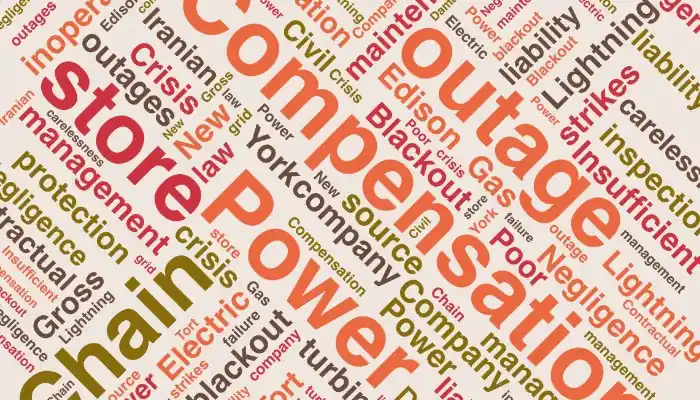Introduction
Defending the rights of a bank loan borrower, as well as their guarantors and mortgagors, is a scientific and technical endeavor. Therefore, a lawyer must not only be proficient in banking law but also understand the rules of the game. The defense attorney is not in a position of hostility or obstinacy against the lending bank; rather, their job is to accurately identify the bank’s deviations and execute the defense correctly using available tools. These tools include laws, regulations, circulars, and directives from the Central Bank. However, this does not mean that the lawyer should reveal all their strategies or information at once. In the following sections, we will discuss the characteristics of a specialized banking lawyer and the potential consequences of choosing a non-specialized lawyer.
Section One: Characteristics of a Specialized Banking Lawyer
Law is designed to regulate all relationships between individuals and governments, from family relations to international state relations. Given the rapid growth and complexity of modern societies, specialization is inevitable, and we observe that in various countries, legal practice is carried out in a specialized manner. For instance, a lawyer proficient in maritime transportation contracts does not engage in oil and banking contracts. Now, we need to understand the characteristics of a lawyer specialized in monetary and banking matters.
1. Mastery of Monetary and Banking Regulations
In Iran, we face the phenomenon of inflation and a multitude of laws, with numerous regulations established in every field. This phenomenon is significantly more pronounced in banking law. The legislature has authorized the Central Bank to enact laws, considering the circulars and directives of the Central Bank as law. Therefore, a lawyer specializing in monetary and banking matters must have comprehensive knowledge of all relevant laws, including general laws and specific laws such as the Monetary and Banking Law of the Country, the Usury-Free Banking Operations Law, the Law on Establishment of Non-Governmental Banks, the Law on Regulation of the Unorganized Money Market, and others. Additionally, the lawyer must be fully acquainted with all circulars, guidelines, and directives of the Central Bank to prepare the best defense. The need to learn specific laws is heightened by the fact that banking law is not taught at the undergraduate level and is only given limited attention in postgraduate studies.
2. Experience in Banking Litigation
You have likely heard the saying, “Experience is a valuable lesson that surpasses the importance of all significant teachings of esteemed professors.” Experience, meaning trial, examination, and becoming aware, expands and enriches human thought. A seasoned individual is someone whose varied tests have refined and solidified their thinking. With this preamble, it can be said that an experienced lawyer in banking litigation is one who has discovered solutions to the borrower’s problems in previous cases and, by referencing them, selects the best strategy for defending the client’s rights. The importance of experience in banking litigation is such that it has become one of the primary criteria for selecting a lawyer, as a lawyer’s capability is demonstrated in practical fieldwork and the judgments obtained.
3. Focus in Banking Litigation
The superiority of focused and in-depth performance over scattered performance is clear to everyone. The entire focus of a specialized lawyer is on the unique field they have chosen, and this concentration allows them to gain more experience and capability every moment. This capability is not only necessary for one or a few cases but is excellently applied in similar and numerous matters.
Section Two: The Major Risks of Choosing a Non-Specialized Lawyer
You have likely heard the saying, “If the first brick is laid askew, the wall will remain crooked up to the roof.” The initial legal action is akin to this first brick, and if it is laid incorrectly, it can undermine the entire foundation of the case. In some instances, the consequences of this misstep are so significant that, in the absence of a victory, there is no possibility of re-filing the case. Below, we briefly outline each of these consequences:
First Risk: Failure and Inability to Refile the Case
Seeking justice is a right for everyone. Therefore, if the rights of the borrower, guarantors, or mortgagors are infringed upon or denied by the bank, the court judge is obliged to hear their case and issue an appropriate ruling. However, once the court’s ruling on the matter is issued and becomes final, compliance with it is mandatory for the parties involved. According to the principle of “prohibition of issuing conflicting judgments,” the parties cannot return to court to refile the same case.
Second Risk: Partial Victory
Although according to the laws and regulations, a lawyer’s commitment to their client is not a commitment to achieve a specific result, it is a rightful expectation of the borrower, guarantors, or mortgagors that the lawyer they have chosen will correctly and completely draft the lawsuit and effectively defend in court and expert sessions. The aim is to restore all their violated rights. For example, if the bank claims it is owed 100 units for the loan granted, but the legal claim should only be 30 units, the client expects the lawyer to invalidate the entire 70 units that the bank has unjustly claimed, not just a portion of it.
Third Risk: Losing Special Opportunities
Ordinary laws are repealed by subsequent legislation, but a significant portion of the laws and regulations governing bank loans fall under “temporary laws,” which expire after a certain period and can no longer be cited in subsequent lawsuits.
For example, Clause 20 of the 2013 Budget Law regarding compensation for damages to the borrower and the elimination of interest and penalties, Clause (w) of Note 16 of the 2017 Budget Law and the Law on Facilitating Debt Settlement for Bank Debtors concerning the elimination of compound interest, Article 20 of the Law on Removing Production Barriers related to special benefits for foreign currency debtors, and regulations governing the repossession of properties acquired by banks, are well-known examples of temporary laws. If a lawyer is not aware of these or does not have sufficient expertise in their procedures and fails to take the correct legal actions within the specified timeframe, the borrower or bank debtors will not be able to take advantage of the benefits and opportunities that the legislator has provided for them.
Conclusion
Given the specialized nature of banking disputes and the abundance of laws and regulations in the field of loan agreements, it seems that the risk of filing a lawsuit against a bank by a non-specialist lawyer is very high. This is because there is a possibility that the violated rights of the borrower or their guarantors and mortgagors may not be fully restored, and they may not be able to seek redress by filing another lawsuit. Therefore, it is recommended to consider the lawyer’s expertise in monetary and banking regulations, the number of banking cases they have handled, and their focus on banking litigation when selecting a lawyer.





